These days, custom products have moved from a niche market to a powerful growth driver to stay ahead in the rapidly evolving eCommerce world. According to McKinsey, 71% of customers expect personalized products, and 76% get frustrated when it’s absent.
However, selling made-to-order, bespoke products is not easy, as it requires more effort: complex customization, accurate quotes, visual clarity, and satisfying buyer expectations. Many eCommerce brands and sellers are more likely to control everything traditionally without advanced tools, which can take time, increase errors, and lose potential buyers.
That’s when everyone needs online sales tools for configuration, visualization, operational automation, and conversion boosters. This article explores 10 must-have product sales software tailored for custom product brands, helping simplify workflows, improve their customer experience, supercharge conversion rates, and lead their industry effectively.
Right now, let’s get it away!
Understand The Roles of Online Sales Tools
Online sales tools are a collection of software, platforms, or apps designed to streamline and automate various aspects of the sales process. In other words, these tools can help manage the entire customer lifecycle, from initial interest to final purchase and beyond.
Here’s what brands or merchants selling custom products might get from this adoption:
- Increasing conversion rates
Innovations like sales configurators for 3D or 2D enable customers to design, customize, and visualize the product design on their own. They can see exactly what they’re creating in real time and get prices—all of these make them feel more confident in their purchase.
Sales funnel tools also feature personalized product recommendations and automated follow-ups to nurture potential buyers and turn more visitors into paying customers. From that, you can reduce abandoned cart rate and drive higher eCommerce conversion.
- Enhancing sales efficiency
Investing in automation platforms plays a crucial role in minimizing manual tasks, such as configuration, quoting, ordering management, meetings, booking, and data entry. As a result, salespeople have more time to focus on building relationships with customers, coming up with great ideas to close more deals, and contributing to overall performance.
- Driving data-driven insights
You can’t make profits by guessing or using outdated info! It’s not smart for long-term growth. Instead, you should take advantage of these tools for valuable data on customer behavior, preferences, and trends. All of these are essential to refining product offerings, personalizing marketing efforts, and optimizing the customer journey for boosted profits.
- Leveraging scalability
While solo merchants or startups admit that they feel fine taking care of all selling phases themselves, this becomes a challenge as their brand grows. They need to handle thousands of complex bookings and orders every day, so how can they optimize these?
One of the leading solutions is a solid tech stack of powerful online sales tools, which allows your operations to scale seamlessly while ensuring accuracy and user experience. From that, sellers can build customer trust and loyalty and establish their brand identity.
What Are The Best Online Sales Tools To Consider?
Tool #1: Sales Configurator (3D product configurator with CPQ features)
This tool is considered the best online sales tool for custom product brands, especially for B2B and high-value B2C items. Robust 3D product configurators for eCommerce, like VividWorks, allow users, either sales teams or customers, to interact with a product in 3D. This gives a deeper understanding of the final product before moving to the next step.
Moreover, the Configure, Price, Quote (CPQ) feature provides instant, accurate pricing based on all selected options. Customers can generate quotes directly without waiting for emails, calls, or manual approvals, saving significant time and enhancing clarity. The software then automatically updates and sends these to sales and manufacturing teams.
What’s more? 3D configurators can be used in sales calls and on-site meetings to engage stakeholders and eliminate back-and-forth communications about the product. Many businesses also leverage the role of these great tools to train new sales reps on the complexities of selling modular design, highly customizable, and bespoke products. This indicates the flexibility of configurators in handling limitless product combinations.
Outstanding features:
- Real-time 3D customization and visualization to offer buyers clarity of the product.
- CPQ for instant prices and quotes instead of manual, back-and-forth exchanges.
- Built-in logics and rules for various types of modular products with a lot of dependencies and complex customization.
- Maximizing efficiency in sales training, calls, and on-site meetings.
- Seamless operation with the back-end system and the reseller system.
- Easy scalability for growing the product catalogs.
Best for: Brands with complex, highly modular products like furniture, kitchen cabinets, modular buildings, retail displays, home decor, automotives, and industrial machinery.
Providers: VividWorks and Zakeke.
Tool #2. 3D Product Customizers
Compared to 3D product configuration platforms, 3D product customizers are great for simpler configuration, like choosing colors, textures, and shapes for the desired design. That’s why sales teams often prefer these tools when customers don’t expect many complex combinations. Similarly, you can utilize 3D customizers to interact with 3D visuals, rotate, and zoom to view items from all corners.
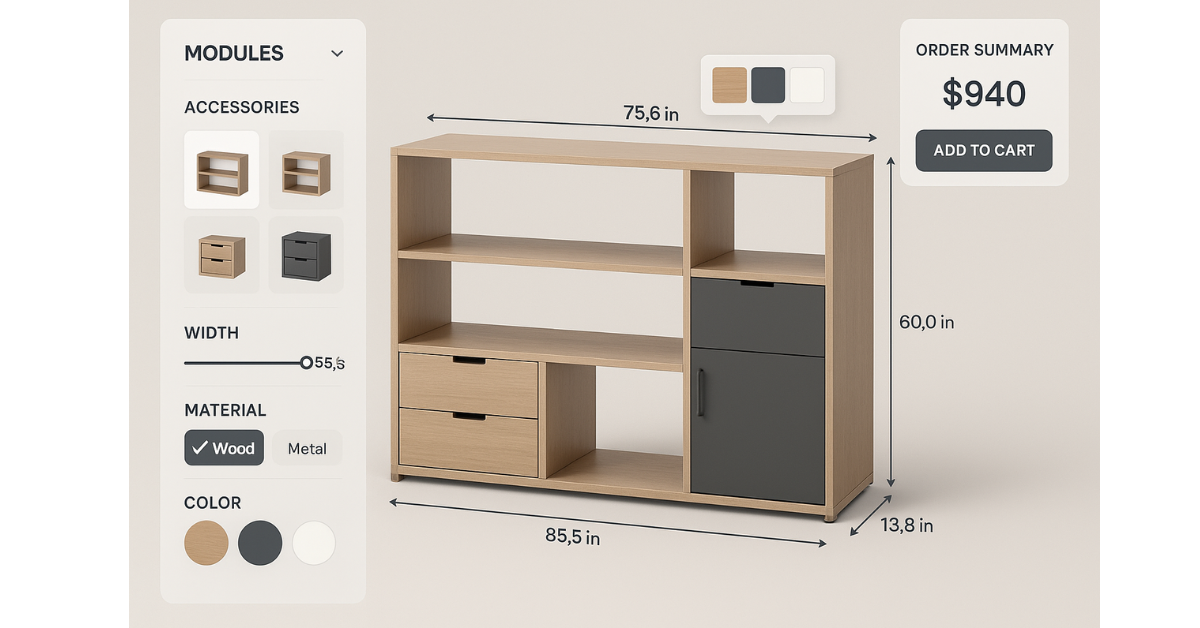
Outstanding features:
- Basic customization options for enhanced sales on custom designs.
- Showcasing items immersively with 3D views to engage buyers and build trust.
- Integration with the back-end workflow to streamline the sales process.
Best for: Brands selling personalized apparel or items with simple customization options.
Providers: VividWorks, KickFlip, and Zakeke.
Tool #3. Email Marketing, SMS apps, and Calling
The following online sales tools, including email, SMS marketing, and calling platforms, are key to nurturing leads and engaging customers. Most brands use them to automate personalized campaigns, send cart abandonment reminders, and especially stay in touch with previous buyers or those who have configured an item but haven’t purchased it yet.
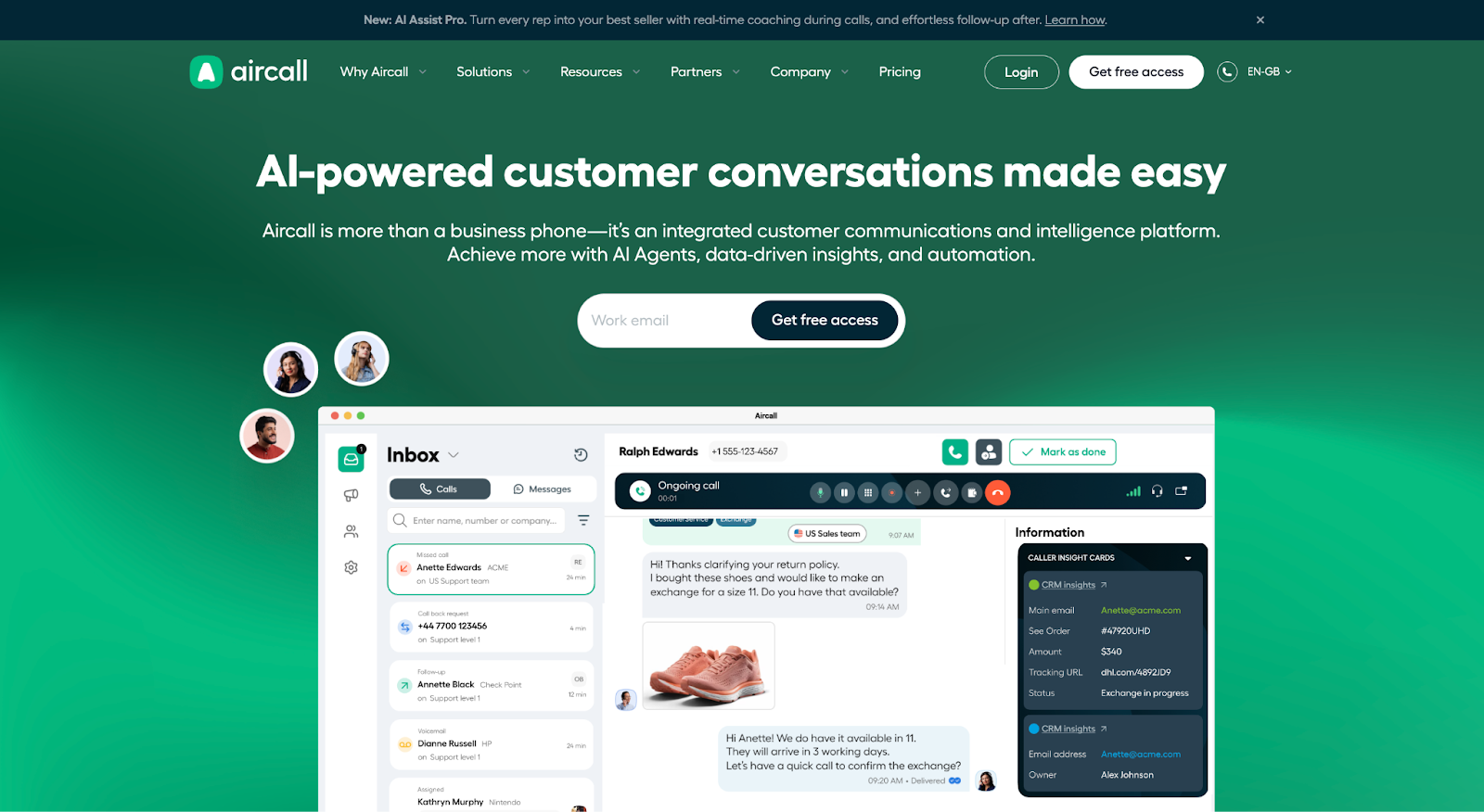
Outstanding features:
- Enabling workflow automation based on customer actions.
- Using data from your CRM to send highly targeted messages.
- Integrating email, SMS, and calling into a single, unified dashboard.
Best for: Goals of lead nurturing and customer retention.
Providers: Aircall, Close, GHL (GoHighLevel), and HubSpot, and ContactOut.
Tool #4. Customer Relationship Management (CRM) software
CRM platforms cannot be overlooked when discussing sales automation tools. They are developed to help manage and analyze customer interactions throughout their lifecycle. In other words, internal teams consider them a centre for tracking customer information and data, optimizing operational processes, and boosting overall customer relationships.
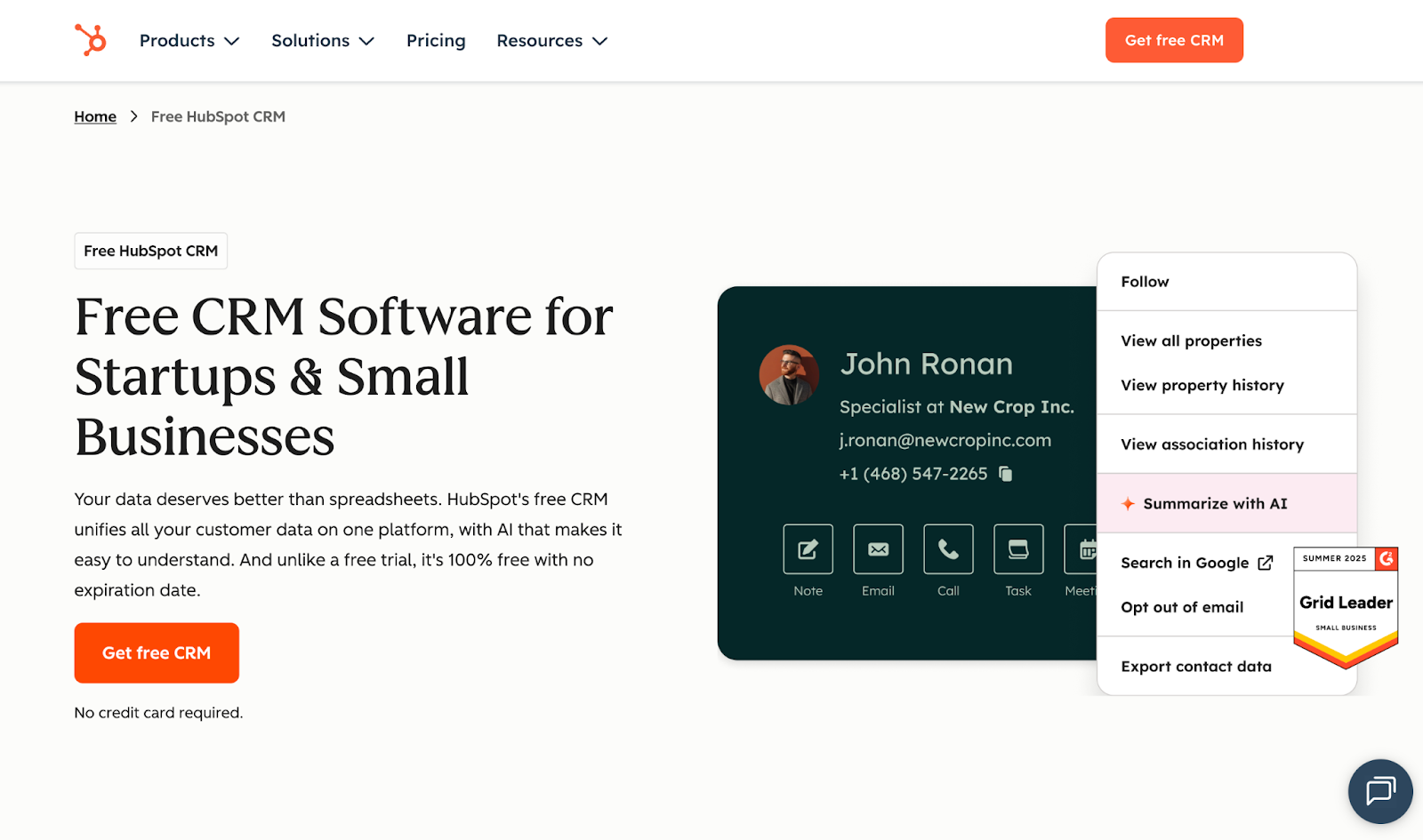
Outstanding features:
- Offering dedicated lead and pipeline management.
- Keeping a record of all interactions, orders, and customizations.
- Providing data-driven insights to predict future trends.
- Automating reminders for follow-ups and other sales-related tasks.
Best for: Brands with longer cycles, complex categories, and client relationships.
Providers: HubSpot, Salesforce, Zoho, and Pipedrive.
Tool #5. Sales enablement tools
These online sales tools allow your teams to manage and update a wide range of sales materials, like proposals, presentations, playbooks, case studies, and product examples. You don’t need to spend time searching through folders of outdated files; reps can quickly find the right content. Sales enablement tools can also personalize sales decks for varied customers and leads, ensuring that the messaging aligns with each prospect.
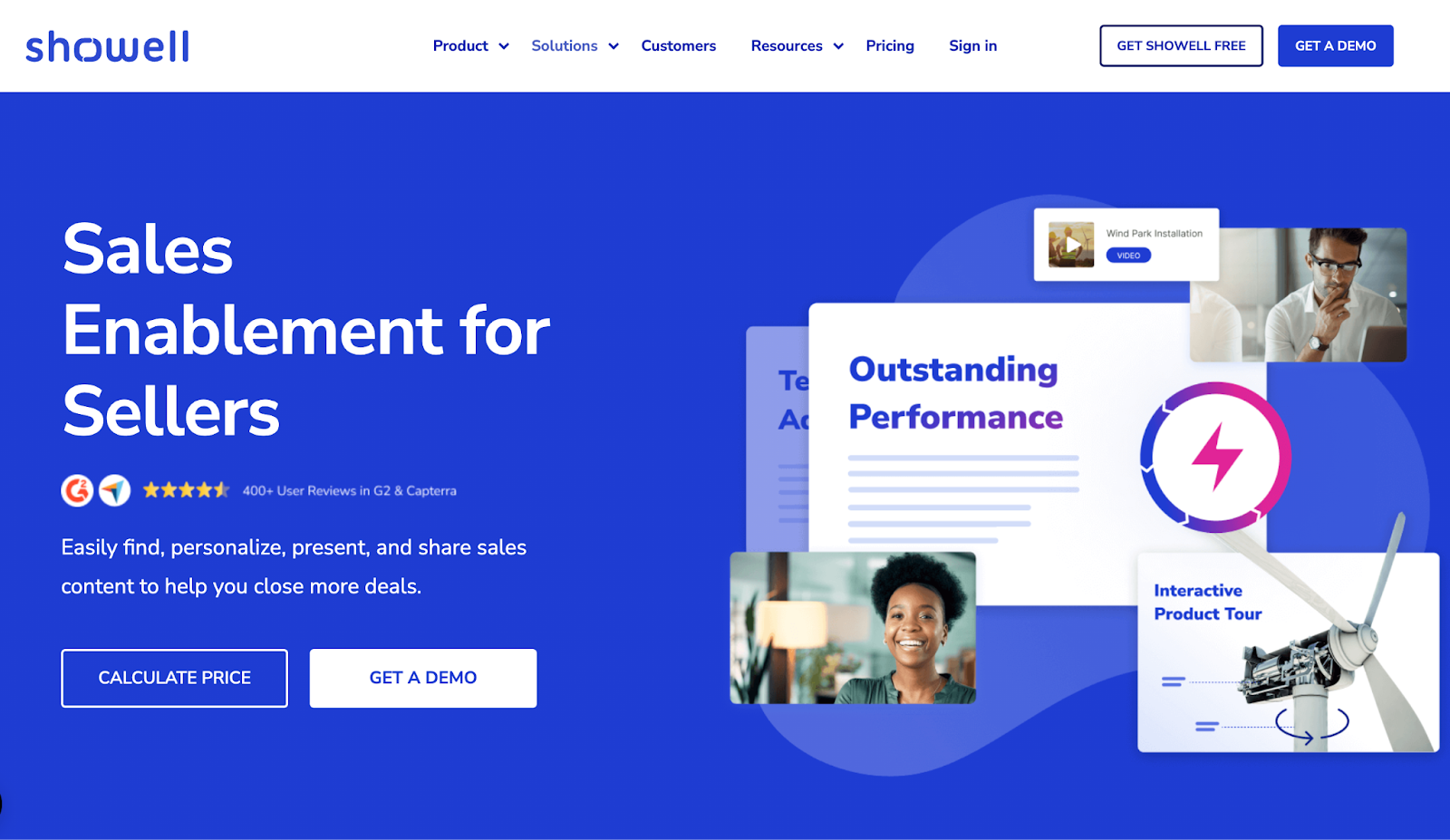
Many advanced solutions, like Showell, provide analytics, engagement tracking, and AI so sales teams know which content is most effective in driving deal closure with buyers.
Outstanding features:
- Being a single, accessible hub for all sales materials.
- Analyzing and tracking which content is most effective in driving conversions..
- Enabling personalized, dynamic presentations for specific clients.
Best for: Large businesses with distributed sales teams that need to stay aligned.
Providers: Showell, Seismic, Highspot, DocSend, and Qwilr.
Tool #6. Enterprise Resource Planning (ERP) software
ERP software manages and integrates a company’s core business operations, including inventory, human resources (HR), finance, manufacturing, and supply chain. With custom product brands, pairing ERP with retail sales software is essential to creating a seamless workflow between sales, production, and fulfillment. This ensures that every customer’s order specifications are stored and communicated to the manufacturing team accurately.
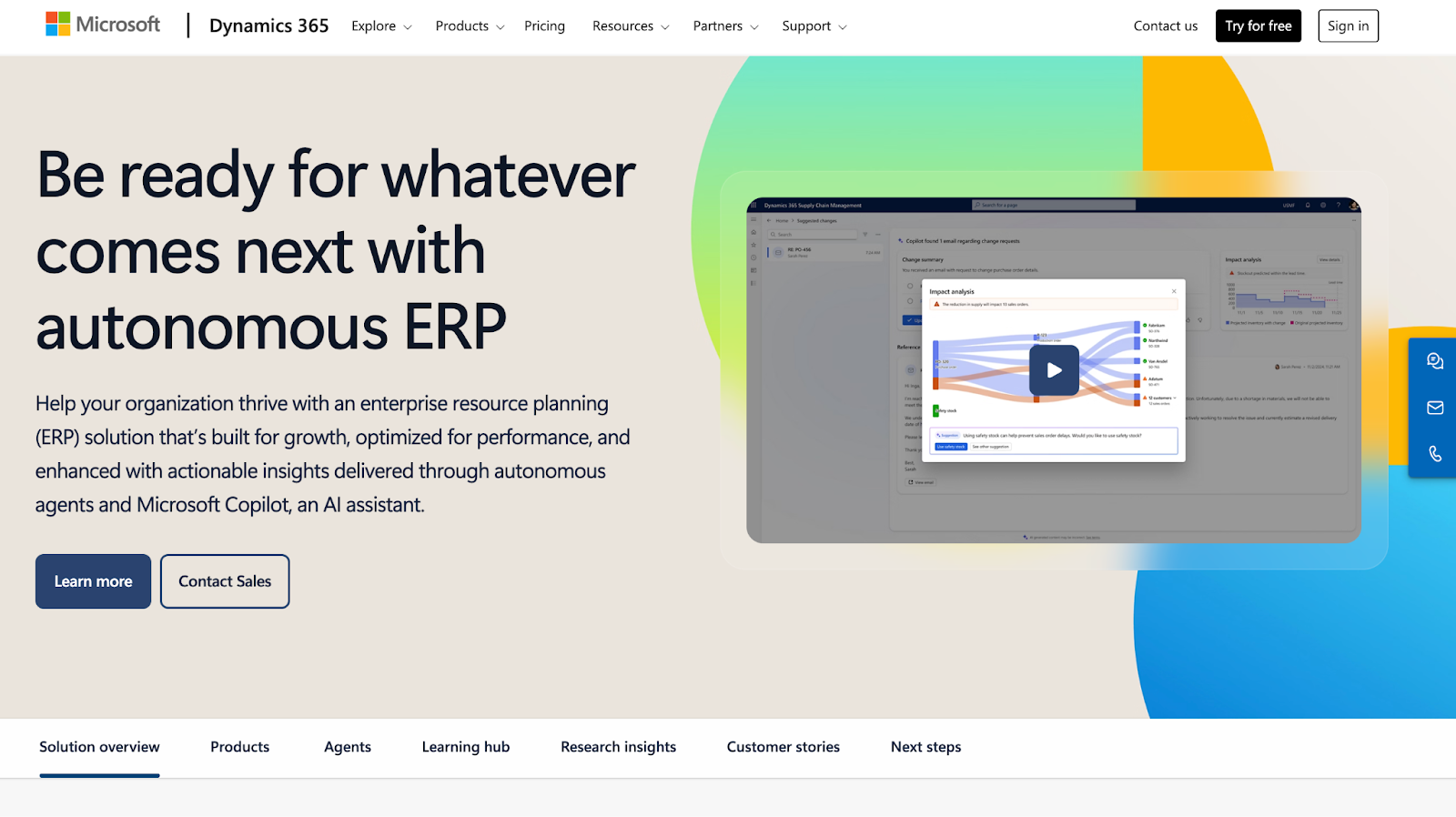
Outstanding features:
- Automatically sending custom order details to the factory.
- Tracking raw materials and components in real-time.
- Handling billing, invoicing, and accounting activities.
- Enhancing decision-making across departments.
Best for: Most businesses for managing their own manufacturing/ supply chain activities.
Providers: Epicors, Oracle Cloud, Odoo, SAP ERP, and Microsoft Dynamics.
Tool #7. 3D Room Planners
A 3D room planner encourages clients to experience designing their own spaces in real-time, making it more effective to plan interior projects with custom products.
Users can create floor plans and layouts with accurate dimensions, select decors, walls, floors, or any other interiors, and visualize the final look in real time. Many planners also offer Virtual and Augmented reality (VR and AR), so both customers and salespeople can easily explore the fully featured home or building and see single designs from all angles.
Outstanding features:
- Engaging clients with the ability to customize a room layout from scratch.
- Offering high-quality, 3D visuals that accurately display designs and their textures.
- Providing real-time, error-free pricing with respective interior customization.
- Integration with existing workflows for efficient order handling.
Best for: Furniture, kitchen and bath, home decor, and building material brands.
Providers: VividWorks, HomeByMe, and Planner 5D.
Tool #8. Meeting Booking Platforms
These online sales tools help simplify the scheduling of meetings and appointments with customers. Sales teams can ultilize them to offer dedicated consultations, demos of their custom products, or one-on-one sessions. Moreover, meeting booking software allows for efficient control of meeting rooms, integration with calendars, and avoiding conflicts.
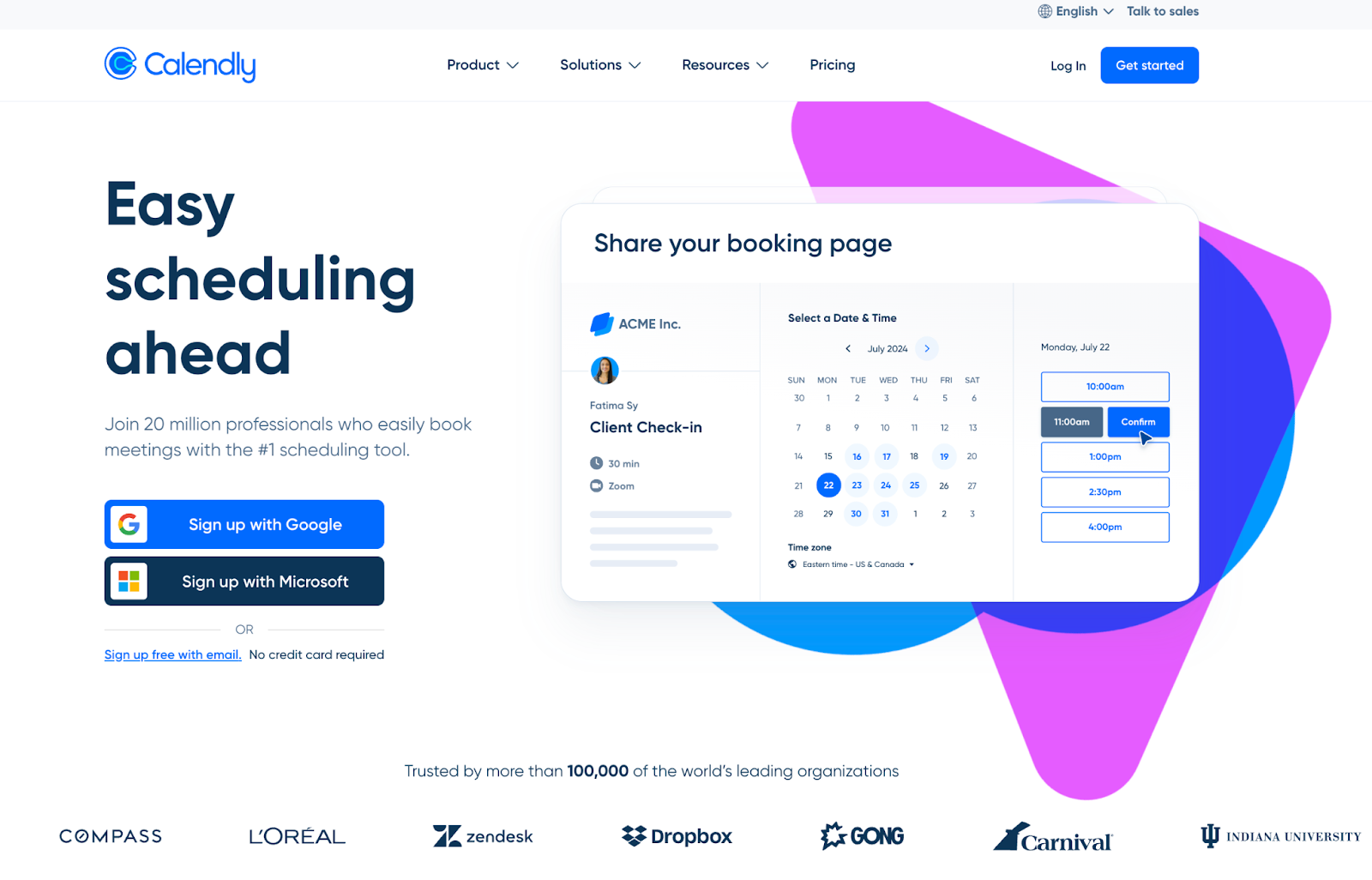
Outstanding features:
- Calendar integration with Google Calendar, Outlook, and others.
- Allowing sales teams to add your branding and the meeting descriptions.
- Enabling automated reminders to reduce no-shows.
Best for: Software/ SaaS brands with frequent consultations, demos, and meetings.
Providers: Notion and Calendly.
Tool #9. Sales Funnel and Checkout Optimization tools
Optimizing your sales funnel and checkout process is one of the most effective ways to improve your conversion rate. With these conversion optimization tools, marketers can analyze customer behaviour, pinpoint friction points, and run A/B tests to detect where visitors or customers drop off. From there, they can offer a more persuasive experience.

Outstanding features:
- Heatmaps and session replays to clarify how customers interact with the store.
- A/B test to compare different store versions to identify which converts best.
- Automated follow-ups (SMS and email) to bring shoppers back.
- Behavior insights to optimize the customer discovery journey.
Best for: All eCommerce brands to reduce cart abandonment and boost conversions.
Providers: ClickFunnels, HeyFlow, GemPages, and Zoho.
Tool #10. AI Writing Tools for Sales Emails
Currently, many businesses ultilize AI writing tools to save time while ensuring effective, personalized email outreach at scale. Typically, these online sales tools can analyze the scenario and the specific profiles to create compelling subjects, copy, and call-to-action. You can even adapt AI-generated templates to match the tone, intent, and each stage.
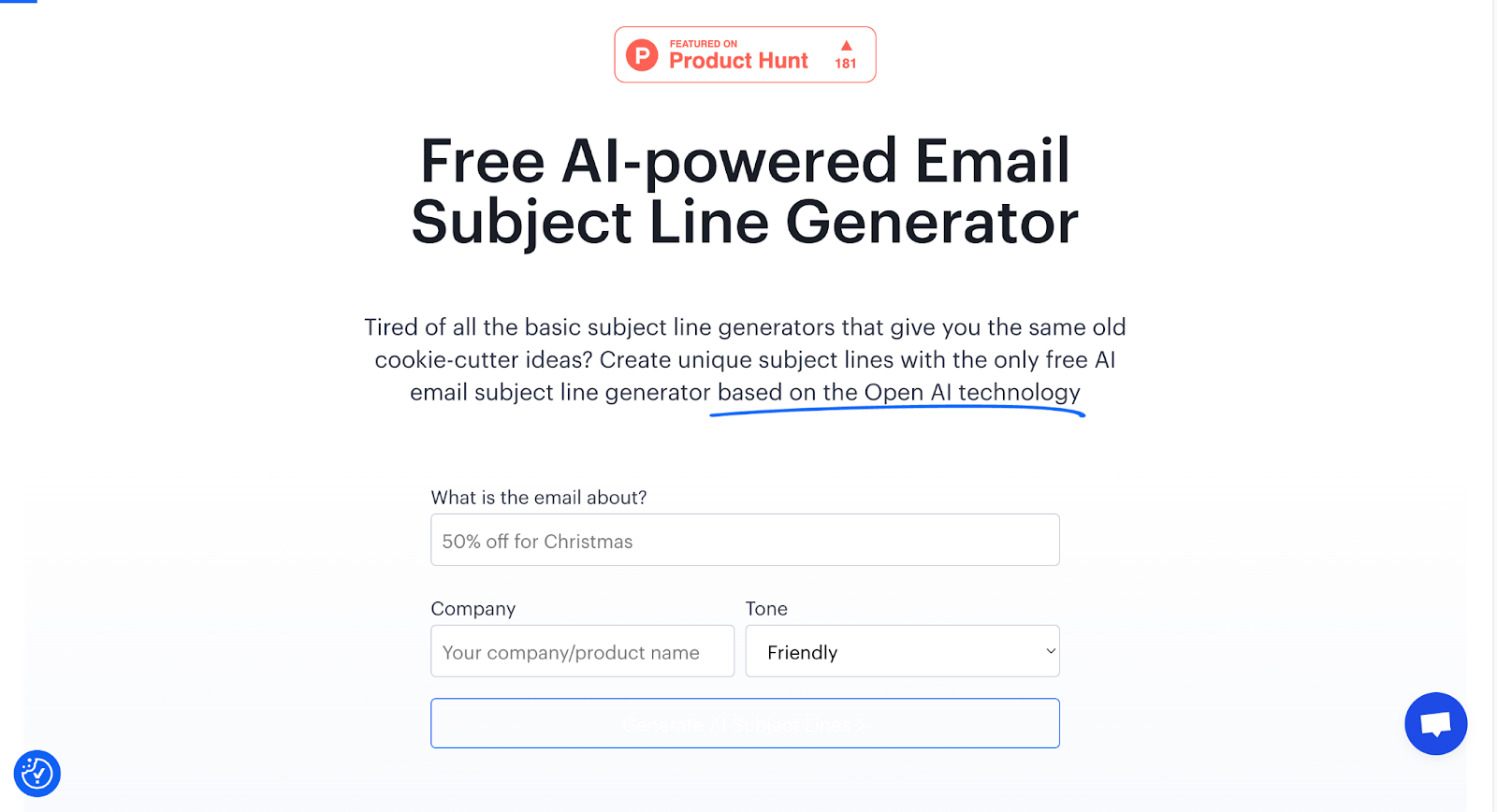
Outstanding features:
- Personalized content generation based on specific customer data.
- Automated subject lines and copy for high-converting emails.
Best for: Sales teams and marketers who manage a high volume of emails.
Providers: Encharge, ActiveCampaign, and HubSpot.
Selecting the Right Sales Tools for eCommerce Conversions
Here’s a checklist that every custom product brand should consider when choosing the proper online sales tools so that salespeople can transform their performance effectively.
- Tools that can handle the complexity of your products and sales process.
- Consider the business model: B2B, B2C, DTC, and resellers.
- Compatibility with your existing back-end systems.
- Solutions that fit your budget while allowing room to grow in the future.
- Provider reliability and reputation in your industry.
- Hidden costs for customer support, updates, and maintenance.
If you sell custom products and would like to speed up your sales cycle and save time, contact VividWorks for a demo of a tailored 3D configurator, customizer, or room planner. In addition to testing our products, you can get expert insights for the best preparation!
Table of Content
-3.avif)
Streamline your process today!







